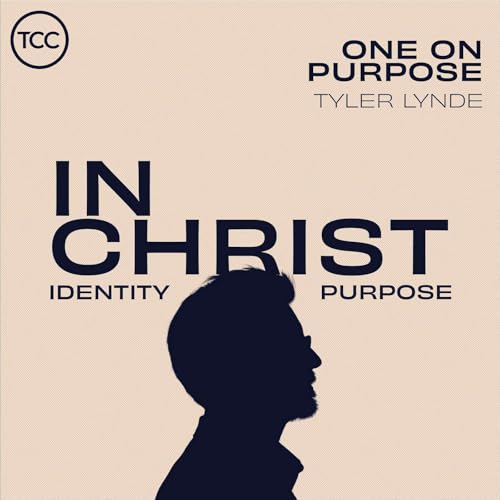In this message from the In Christ series, Tyler Lynde opens Ephesians 4:1–6 and calls our church to be One on Purpose. Division is cheap and everywhere; unity, he says, is a grace gift from God that we are eager to maintain. Building from identity to purpose, Tyler urges us to “walk worthy of the calling” with humility, gentleness, patience, and enduring love, refusing to let clashing personalities, secondary doctrines, or cultural tribes outrank our eternal bond in Jesus.
Tyler traces a biblical peace pattern that makes unity possible in real life. First, peace with God through the gospel (Romans 5:1): we acknowledge our need, repent, believe on the Lord Jesus, and live a transformed life by grace. Then, the peace of God that steadies us when circumstances shake (Philippians 4:7). Tyler shares how, during a hospital crisis, God’s presence filled the room with a peace nurses could feel—an embodied picture of Christ’s calm that guards hearts and minds. Finally, the Spirit grows the fruit of peace in us (Galatians 5:22–23), reshaping tone, timing, and responses in conflict. Without peace with God, no other peace can hold; with it, we can practice a new reflex in our homes, teams, and church family.
To keep unity substantive—not sentimental—Tyler anchors us in seven essentials Paul gives: one body, one Spirit, one hope, one Lord, one faith, one baptism, one God and Father of all. These pillars define the nonnegotiables of historic Christianity and supply a shared center when opinions multiply. Around them we practice wise freedom on non-essentials and stubborn love in all things, living the ancient wisdom: in essentials, unity; in non-essentials, liberty; in all things, charity. Practically, Tyler invites us to de-escalate with grace, ask whether a concern is eternal or preferential, speak truth seasoned with kindness, take grievances to people not about them, resist caricatures and party-line proxies, confess quickly, forgive fully, and keep a seat at the table even when differences remain. He names the enemy’s strategy to splinter the church and stall the gospel—and shows how the cross levels us all.
Tyler closes by praying Jesus’ John 17 prayer over our church, asking that our oneness would tell the truth about him to a watching world. Watch and share this message with a friend who needs hope for hard relationships, and let’s keep the main things main as we walk in the bond of peace.
We are Trinity Community Church in Knoxville, Tennessee.
Subscribe to our Podcast & YouTube channel to find past sermons, classes, interviews, and more!
Find us on Facebook & Instagram
 Feb 15 202641 mins
Feb 15 202641 mins Feb 8 202646 mins
Feb 8 202646 mins Jan 25 202653 mins
Jan 25 202653 mins Jan 18 202647 mins
Jan 18 202647 mins Jan 11 202649 mins
Jan 11 202649 mins Jan 4 202633 mins
Jan 4 202633 mins Dec 28 202555 mins
Dec 28 202555 mins Dec 21 202544 mins
Dec 21 202544 mins
